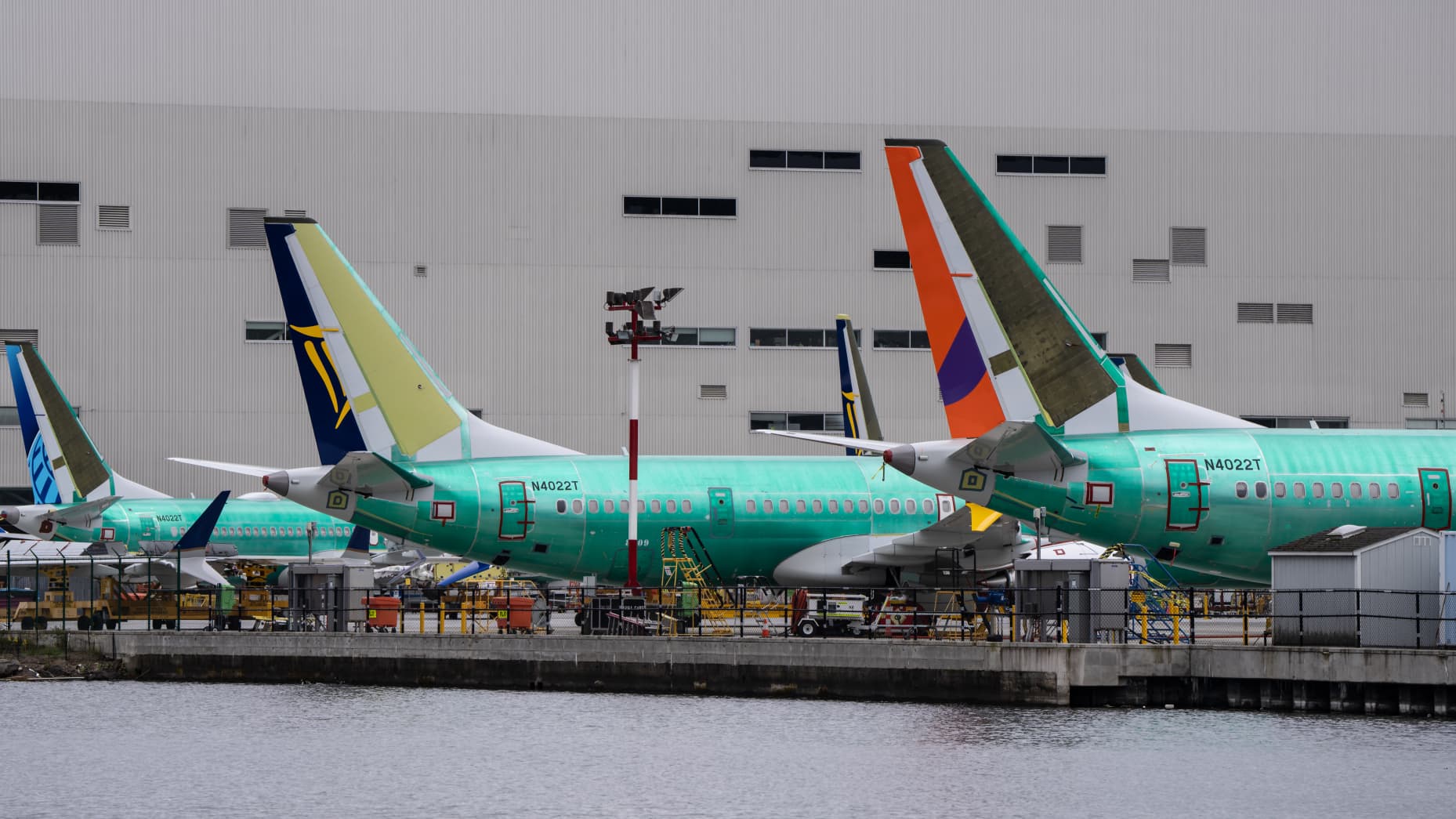
Boeing is a name that resonates with aviation enthusiasts and travelers alike. Founded in 1916, this aerospace giant has been at the forefront of innovation for over a century. But what makes Boeing so special? Boeing's contributions span from commercial airliners to military aircraft, satellites, and even space exploration. Did you know that the iconic 747, often called the "Queen of the Skies," revolutionized long-haul travel? Or that Boeing played a crucial role in the Apollo missions? Whether you're curious about its history, technological advancements, or fun trivia, these 21 facts will give you a deeper appreciation for Boeing's impact on the world. Buckle up and get ready to soar through some fascinating tidbits about this aviation titan!
The Birth of Boeing
Boeing has a rich history that spans over a century. Let's dive into some fascinating facts about this aerospace giant.
-
Founded in 1916: Boeing was established by William Boeing in Seattle, Washington. The company initially focused on building seaplanes.
-
First Plane: The first aircraft produced was the B&W Seaplane. It was named after its creators, William Boeing and Conrad Westervelt.
-
World War I Contribution: During World War I, Boeing supplied the U.S. Navy with seaplanes, marking its entry into military aviation.
Expansion and Innovation
Boeing didn't just stop at seaplanes. The company expanded its horizons and became a leader in aerospace innovation.
-
Commercial Aviation: Boeing entered the commercial aviation market in 1928 with the Boeing 80, a tri-motor biplane designed for passenger service.
-
First Jetliner: The Boeing 707, introduced in 1958, was the first successful commercial jetliner, revolutionizing air travel.
-
747 Jumbo Jet: The iconic Boeing 747, also known as the "Queen of the Skies," was introduced in 1970. It was the first wide-body airplane.
-
Space Exploration: Boeing played a significant role in the Apollo missions, providing the first stage of the Saturn V rocket.
Military Might
Boeing's contributions to military aviation are substantial, providing advanced technology and aircraft to armed forces worldwide.
-
B-17 Flying Fortress: During World War II, Boeing produced the B-17 Flying Fortress, a heavy bomber used extensively by the U.S. Army Air Forces.
-
B-52 Stratofortress: The B-52, introduced in the 1950s, remains in service today. It's known for its long-range and heavy payload capacity.
-
F/A-18 Hornet: This versatile fighter jet, used by the U.S. Navy and Marine Corps, was developed by McDonnell Douglas, which merged with Boeing in 1997.
Technological Advancements
Boeing has always been at the forefront of technological advancements in aviation and aerospace.
-
Composite Materials: The Boeing 787 Dreamliner, introduced in 2011, uses composite materials for 50% of its primary structure, making it lighter and more fuel-efficient.
-
Autonomous Flight: Boeing is investing in autonomous flight technology, including drones and pilotless aircraft.
-
EcoDemonstrator Program: This program tests new technologies aimed at reducing aviation's environmental impact, including sustainable fuels and noise reduction.
Global Presence
Boeing's influence extends far beyond the United States, with a significant global presence.
-
International Partnerships: Boeing collaborates with aerospace companies worldwide, including partnerships in Japan, Australia, and Europe.
-
Global Workforce: The company employs over 140,000 people across more than 65 countries.
-
China Market: Boeing has a strong presence in China, with a significant portion of its commercial aircraft being sold to Chinese airlines.
Financial Powerhouse
Boeing's financial strength is a testament to its success and influence in the aerospace industry.
-
Stock Market: Boeing is a component of the Dow Jones Industrial Average, reflecting its importance in the U.S. economy.
-
Revenue: In 2020, Boeing reported revenues of $58.16 billion, despite the challenges posed by the COVID-19 pandemic.
-
Research and Development: The company invests heavily in R&D, spending billions annually to stay ahead in technology and innovation.
Challenges and Controversies
Like any major corporation, Boeing has faced its share of challenges and controversies.
-
737 MAX Grounding: The 737 MAX was grounded worldwide in 2019 following two fatal crashes. It was a significant setback for Boeing.
-
Ethics and Compliance: Boeing has faced scrutiny over its business practices, leading to efforts to improve corporate governance and transparency.
Boeing's Legacy in Aviation
Boeing's impact on aviation is undeniable. From pioneering commercial jets to advancing aerospace technology, Boeing has shaped how we travel and explore. Their aircraft, like the iconic 747, have become symbols of innovation and reliability. Beyond commercial aviation, Boeing's contributions to space exploration and defense have been significant, pushing the boundaries of what's possible.
Their commitment to sustainability and future technologies shows a forward-thinking approach. As we look to the skies, Boeing's influence will continue to be felt, driving progress and inspiring future generations of engineers and travelers. Whether it's through cutting-edge aircraft or groundbreaking space missions, Boeing remains at the forefront of aviation and aerospace. Their legacy is not just in the planes they build but in the dreams they help realize.
Was this page helpful?
Our commitment to delivering trustworthy and engaging content is at the heart of what we do. Each fact on our site is contributed by real users like you, bringing a wealth of diverse insights and information. To ensure the highest standards of accuracy and reliability, our dedicated editors meticulously review each submission. This process guarantees that the facts we share are not only fascinating but also credible. Trust in our commitment to quality and authenticity as you explore and learn with us.


